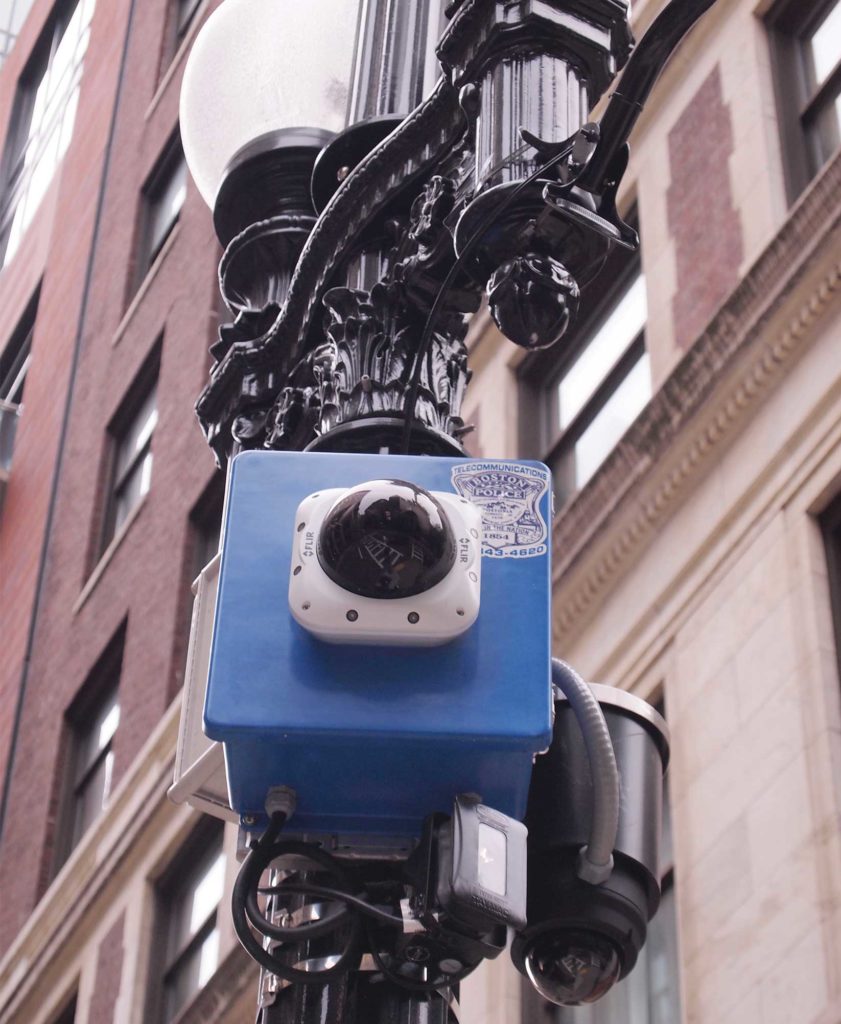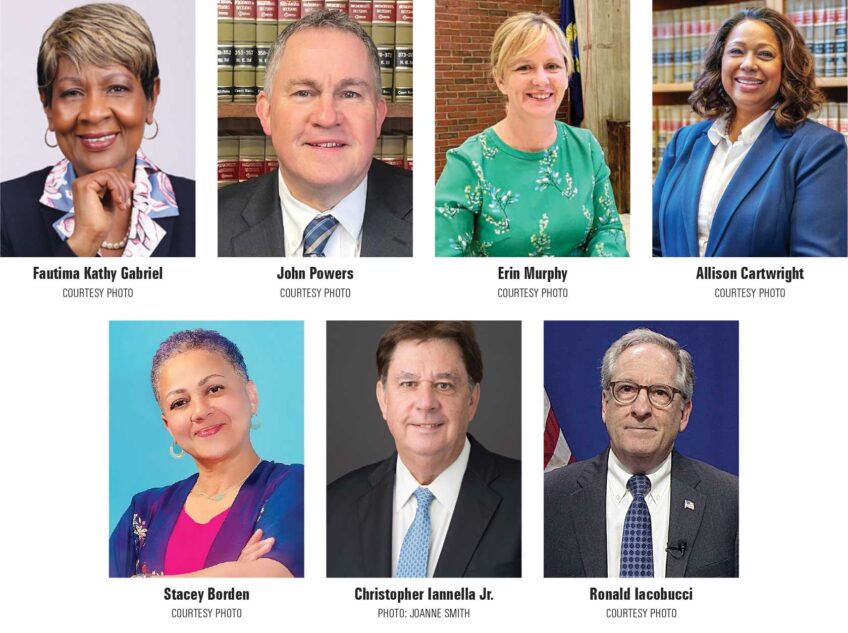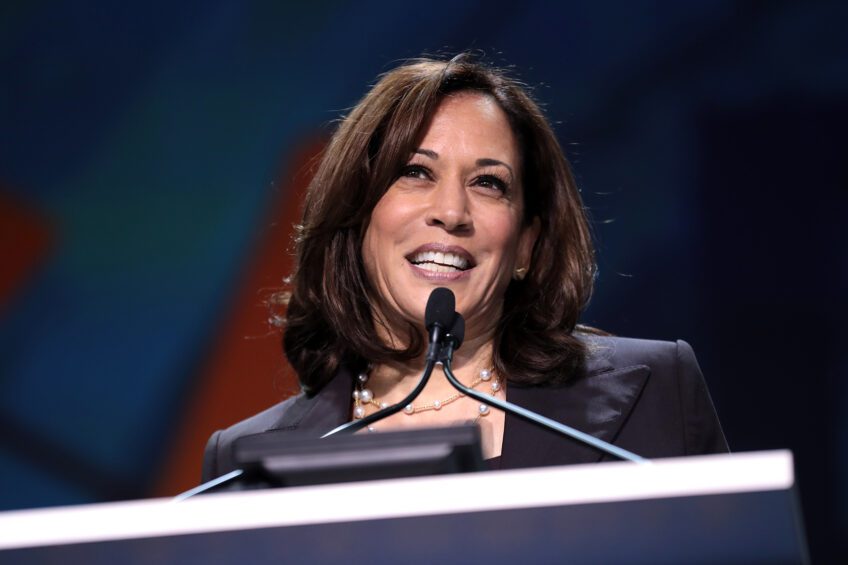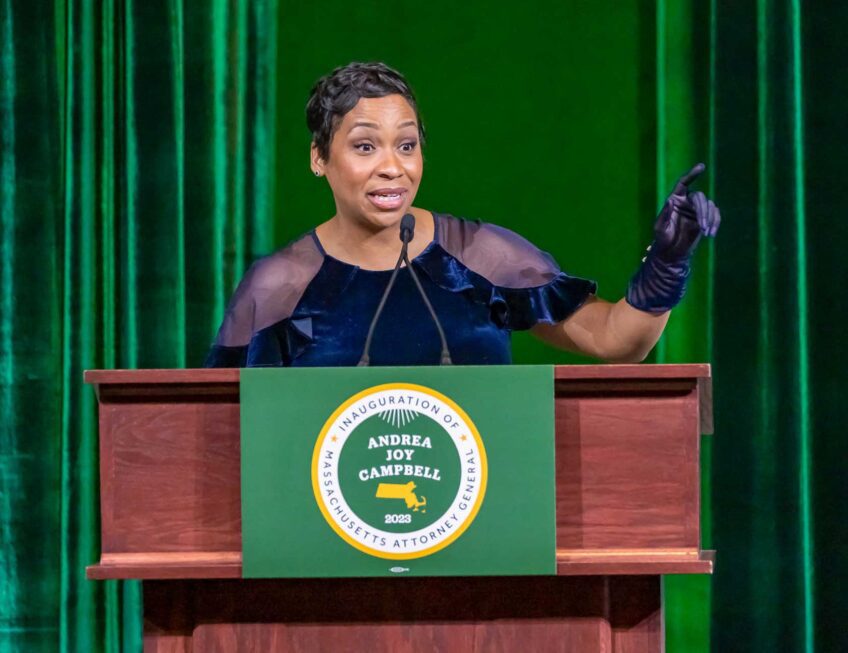Council reins in police surveillance
Ordinance requires council approval for any new surveillance tech

After years of activism by civil rights groups, the Boston City Council passed an ordinance unanimously last week that increases transparency on police use of surveillance technology.
Ordinance 16-63 “on surveillance oversight and information sharing” mandates that surveillance technology, including facial recognition software, security cameras, license plate readers and more, cannot be acquired or used without the Council’s permission, and limits information-sharing between all information-gathering agencies. In particular, the ordinance expressly prohibits information-sharing between law enforcement and the Boston Public School system.
The ordinance was filed by acting Mayor Kim Janey when she was District 7 councilor and was sponsored by Councilors Ricardo Arroyo and Michelle Wu.
Councilor Lydia Edwards, who chairs the Committee on Government Operations, was part of the process of getting the ordinance passed. She spoke to the hard work of those involved and emphasized the importance of the legislation.
“When it comes to the surveillance of the everyday people of the city of Boston, we at the City Council take that very seriously … this is about civil liberties, this is about transparency, this is about government technology [and] what it’s using in order to watch all of us,” Edwards said. “This is not about stopping policing, this is not about preventing our government from responding to an emergency, this is about knowing how our government is functioning with our tax dollars.”
Under the new ordinance, two new commissions will be formed — the Surveillance Oversight Advisory Board, a permanent group comprised of five individuals, one representative to be chosen by each of the following: the president of the City Council, the American Civil Liberties Union (ACLU) of Massachusetts, and the Boston Police commissioner; and two representatives chosen by the mayor that will make ongoing recommendations to the office. The second is the Surveillance Data Privacy Working Group, a temporary organization that will create recommendations for the mayor’s office based on the goals of the ordinance.
The ACLU of Massachusetts has been one of the organizations at the forefront of the fight against police surveillance, including the Boston Police Departments’ use of facial recognition and social media scanning software.
“We applaud the Boston City Council for passing an ordinance that will empower residents and their elected officials to decide if and how surveillance technologies are used here,” said Carol Rose, executive director of the ACLU of Massachusetts in a statement on Oct. 20. “Far too often, police departments obtain invasive, costly surveillance equipment in secret and without any oversight. This ordinance flips that script, ensuring local residents remain in control of their own communities.”
As for the block on information-sharing with schools, that comes after years of criticism of the Boston Regional Intelligence Center (BRIC) and its controversial gang database. A council probe into the database last year showed a high rate of Black and Latinx students listed in the database.
“The provisions on here for BPS, I’m incredibly proud of,” said Arroyo, sponsor of the ordinance. “They allow us to still make sure our kids are safe while also ensuring that situations that we’ve had in the past where people have ended up with criminal records out of school incidents or have ended up deported because of school incident reports, those loopholes are covered while still allowing for instances where for safety purposes that information needs to be transferred.”
Wage theft, Mass and Cass
In addition to the passage of the surveillance ordinance, two other docket items were referred to the Government Operations Committee. The first was an ordinance preventing wage theft in the City of Boston, submitted by Arroyo and Councilor Julia Mejia. The second was a late file by Councilor Frank Baker, looking to ensure “access to public spaces” as the ongoing crisis at Massachusetts Avenue and Melnea Cass Boulevard continues to worsen.
Arroyo’s ordinance looks to stop wage theft by creating a Wage Theft Advisory Committee to take complaints of employers committing theft and “generate education and guidance to employees affected by wage theft and publish an annual report about those complaints and what was done about them.
The legislation also creates strengthened communication with other government entities such as the Attorney General’s Office and will create a more rigorous process for granting approval to project proposals, as many instances of wage theft happen among contractors working as gig workers.
Illustrating the rampant problem in the industry, Arroyo was joined in the Council chamber by representatives of Carpenters Local 723, which he said helped inform the language of the ordinance.
A story in the Banner earlier this month explored stolen wages paired with dangerous conditions for those working in construction. Additionally, the Banner’s reporting looks at how many of the jobs engaging in these practices go to undocumented immigrants looking to make a living.
“It’s not the higher-ups who are experiencing wage theft, it’s not the CEO, the CFO, or the general manager,” Mejia said at the Oct. 20 meeting. “It’s the low-income workers, the people out in these work sites doing the work. It’s the people who, if $100 or so is missing out of their paycheck it can’t just be written off. That money is for food, shelter, heat, medical bills and more.”
Before the measure was referred to committee, Councilors Ed Flynn, Andrea Campbell, Lydia Edwards, Kenzie Bok, Liz Breadon, Michael Flaherty, Frank Baker and both mayoral candidates — Michelle Wu and Annissa Essaibi George — added their names to the ordinance.
Baker’s ordinance regarding “access to public spaces” condemns the current state of the encampments at and around the “Mass and Cass” intersection as a threat to public safety and looks to engage the Council in decreasing the population living on the street.
“It’s time for us to start dealing with this,” Baker told the Council, after calling Janey’s recent executive order authorizing the removal of tents “a day late and a dollar short.”
Baker wants to create a “coordinating response center” that includes an outreach team as well as police, fire, transportation and health professionals in order to deal with the ongoing issue and hopefully coordinate finding long-term rehabilitation for those in the area.
Though the ordinance moved on to the Government Operations Committee with a majority of cosponsors on the Council, several spoke up to air out initial concerns.
Edwards shared her concern, stating that she hoped the Council could come to an agreement on updated language that is very specific on how tents would be removed and how those struggling with addiction would be engaged with.
“I don’t want to criminalize being poor and homeless,” she said.
It’s unclear how the Council’s work will coordinate with Janey’s executive order.






